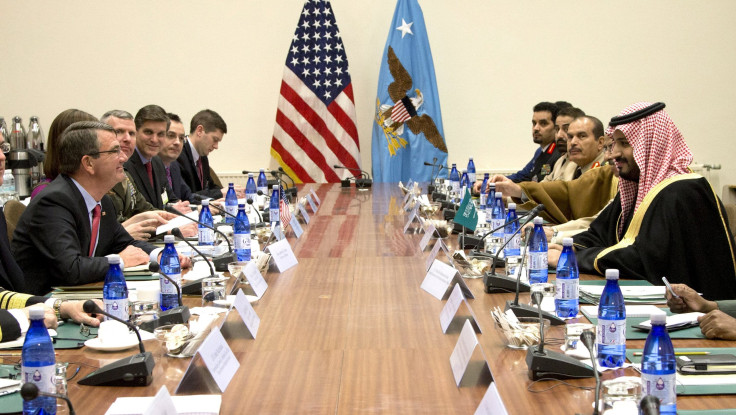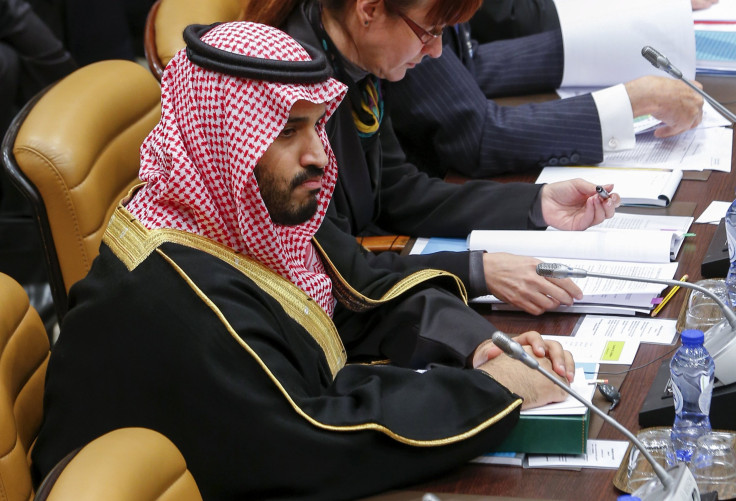‘Airstrikes Are Not Enough’ To Fight ISIS: Will Saudi Arabia Send Ground Troops To Syria?

BEIRUT — For the last year, many of the world’s governments have been trying to answer the same fiendishly difficult question: How does one defeat the Islamic State group? Airstrikes have proved insufficient. The militants still occupy vast swaths of Iraq and Syria and have since moved into Libya. Attacks are no longer bound by the borders of conflict — at least a dozen countries have seen casualties on home soil. Nearly two years since the U.S. assembled an international coalition to counter the threat from the group, also known as ISIS, Defense Secretary Ash Carter and 48 of his allied counterparts are meeting in Brussels Thursday to ask once again — but this time, they're hoping to find an answer.
The major talking point at NATO headquarters in the Belgian capital is whether ground troops will be the next strike against ISIS. Last week, a Saudi military spokesman announced the kingdom — a long-time supporter of Syrian rebel groups opposing Syrian President Bashar Assad — was willing to send ground troops into Syria. But analysts are skeptical the country will follow through without backing from the U.S., Turkey and surrounding Gulf states.
“I certainly appreciate and value the Saudi willingness to engage on the ground. I think that would be a challenge for them if they try to take that on,” Director of National Intelligence James Clapper said Tuesday.
So far, the U.S.-led coalition’s anti-ISIS strategy in Syria has been two-fold: to carry out a series of targeted airstrikes aimed at cutting off militants’ finances and leadership and to create a strong ground force by arming moderate rebels. But airstrikes have proved inadequate on their own and, moreover, the priority of the majority of rebel groups in Syria is to fight the regime and its allies first, leaving ISIS second.
Defense leaders are discussing a range of options to strengthen the fight against ISIS. For Saudi Arabia, its next steps in Syria could range from a joint special operations ground force in conjunction with the U.S. to a full-scale offensive. Many experts remain doubtful Saudi Arabia's declaration will come to fruition.

“I do not assess that the Saudi ground forces would have ... the capacity to take this fight on,” Vincent Stewart, director of the Defense Intelligence Agency, told the Senate Armed Services Committee. “It is doubtful that the kingdom would deploy troops to Syria unless they were part of a broader Gulf or U.S. effort.”
Saudi Arabia has the strongest military in the Gulf, with upwards of 150,000 servicemen operating their ground force, Air Force and naval force. The kingdom also boasts hundreds of tanks and more than 300 fighter jets and military helicopters. But Saudi Arabia’s military has been entrenched in a brutal conflict in Yemen for more than a year that has cost the kingdom in both cash and capacity.
Offering to send ground troops to Syria was a drastic change for Saudi Arabia and its Gulf allies. While they’ve been a part of the U.S.-led coalition since the beginning, their role has been minimal. The Gulf states supplied weapons to rebels in Syria but did not participate as willingly in airstrikes, with the brutal execution of Jordanian pilot Muath al-Kaseasbeh in December 2014 prompting the United Arab Emirates to suspend its bombardment against ISIS.
But ISIS is not the only threat to Gulf interests. The Saudi announcement of a possible ground incursion coincided with the Syrian regime making the most significant gains on the ground since the civil war began five years ago, seizing two major towns in Aleppo province with the help of aerial support from Russia. Speculation about the timing of the Saudi kingdom’s offer has been rife.
“Not coincidentally, [Saudi and its Gulf allies] all stepped forward [and offered] ground troops for the anti-ISIS campaign. But this is more geared toward Aleppo than anti-ISIS. The timing is not coincidental,” said Chris Kozak, a Syria analyst at the Institute for the Study of War. “Winning Aleppo could provoke an escalation from Turkey and Saudi Arabia.”
A likely response to the siege of Aleppo, Kozak said, is that Saudi Arabia sends additional reinforcements “including Manpads [surface-to-air anti-aircraft missiles] and other sophisticated weapons” to rebel groups fighting the regime and the multitude of Iranian-backed militias on the ground.
But, as more parties look to get involved on the ground, the U.S. and Russia's call for a ceasefire looks like it will go unanswered, prolonging a conflict that already has claimed nearly a half-million lives.
© Copyright IBTimes 2024. All rights reserved.






















